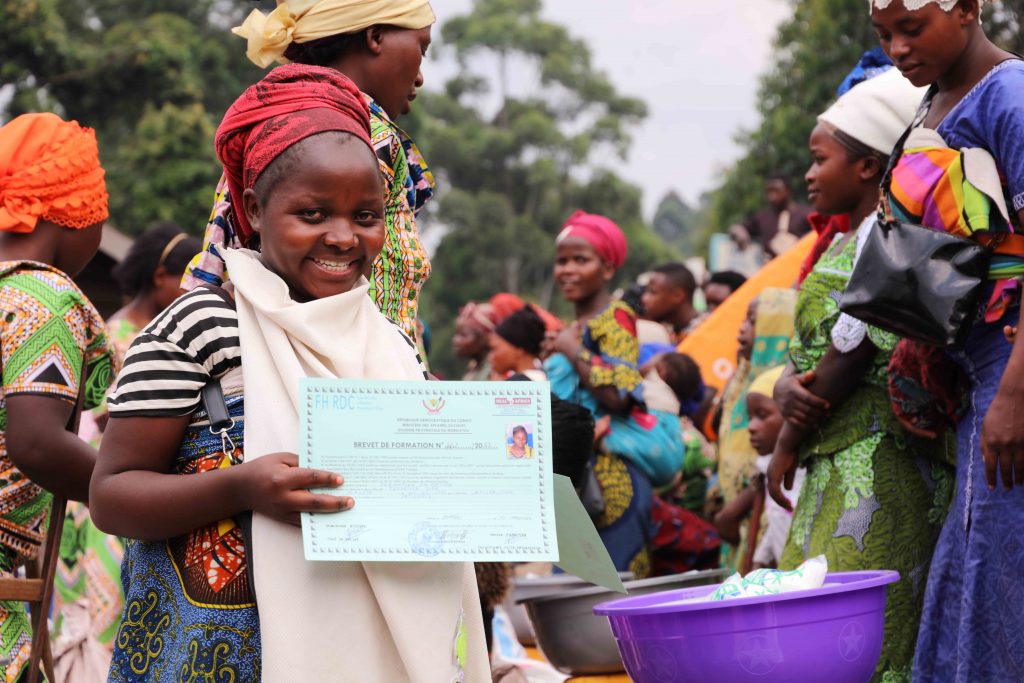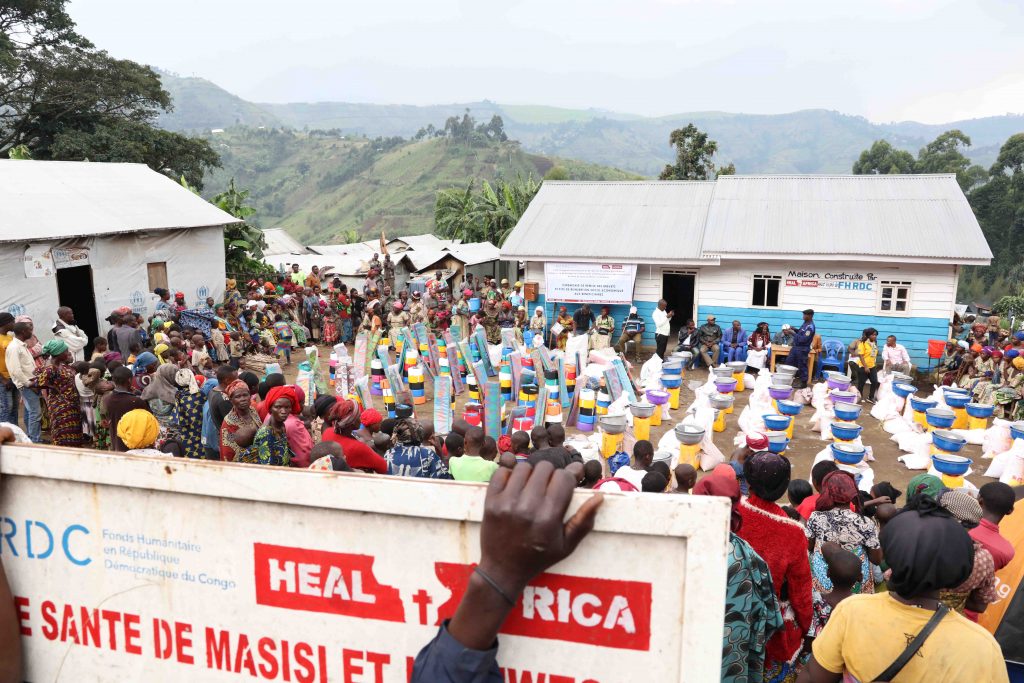Masisi: 343 women receive their socio-economic rehabilitation kits
Masisi: 343 women receive their socio-economic rehabilitation kits
A collective joy, smiles restored at the end of a successful care! With the financial support of the DRC Humanitarian Fund (DRC HF), HEAL Africa has awarded patents and socio-economic reintegration kits to 343 women beneficiaries of the emergency project for the prevention and holistic response to gender-based violence in communities affected by humanitarian crises in Masisi and Mweso health zones.
It was after 6 months of vocational training in various trades and business skills that these women beneficiaries received their launching kits to start their own income-generating activities in the villages of Lushebere, Kalinga and Masisi Centre in Masisi health zone, then in Busumba and Kivuye in Mweso health zone.
Constituting the last site for this activity of delivery of reintegration kits to beneficiaries, Kibarizo village was not served due to insecurity that has reached its highest peak with the new waves of war that have broken out in the region. “As the village and its surroundings are very affected by the war, the team was unable to travel to Kibarizo to serve the women beneficiaries who were waiting for them,” explained Mr. Dieudonné MUHIRWA, Project Manager at HEAL Africa.
Empowering women, reducing the risk of violence GBV
After decades of war and armed conflicts in Masisi territory, women are at the top of the list of victims, sinking into a state of unbearable vulnerability. Yet in rural areas of DRC, women are the central axel of their homes economy, their families’, and therefore that of their communities. Therefore, the problem takes community proportions when women are deprived of their means downstream from violence.
Very often, the woman uses the means at her disposal to be able to feed her family. As a result, she confronts the harsh reality that leads her to cultivate the land far from built-up areas, exposed to the most bloodthirsty executioners. Suffering the worst while she seeks to feed her family, she loses her means to respond to the needs of her home.
This is the case of Joëlle (alias) who, on her way back from a field about 7 kilometers from her village, came across three armed men who inflicted on her “the most inhuman treatment a woman can suffer“, as she described it. She was narrowly saved thanks to the package of services made available to her by the project in a local health centre.
Fleeing atrocities in her village, Ms. Maombi (alias) was subjected to similar treatment in front of her husband. Germaine (alias) was on her way back from field works near her village when she experienced a comparable treatment. Many women have had such a devastating experience in Masisi territory. Thanks to the support of the DRC HF, HEAL Africa has been able to provide these brave women with the necessary care after the calamities they endured.
Serving women in a context with multiple needs
Given the geographical extent of the territory of Masisi and the armed conflicts that have resurfaced in the region, the need for care for women remains present. This is what came out from the word of circumstance of Mrs. MAPENDO MAFARANGA Alphonsine, Head of the Gender, Family and Child Office in Masisi territory, who raised the need to train even more women in vocational professions. “Many women would benefit greatly from similar training in health areas that were not covered by the project during this phase », she said.
« Masisi is a humanitarian emergency area. We need partners like HEAL Africa and the DRC HF to leave the emergency context and get involved in the development of this territory,” alleged Dr. Lucien BINDU KANDUNDAO, Chief Medical Officer of the Masisi Health Zone. The expression of this need was almost common in the speeches from the women beneficiaries who had their words to place during the patents and reintegration kits awarding ceremony in the 5 sites/safe spaces concerned.


